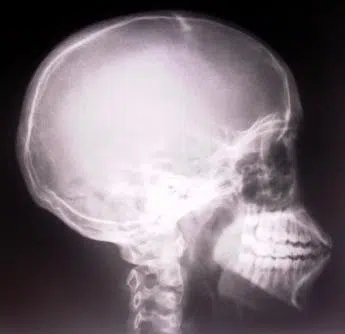When a Slip-and-Fall Causes More than a Couple Bruises
March is National Brain Injury Awareness month, and according to the Brain Injury Association, each year an estimated 2.5 million children and adults sustain a traumatic brain injury. Today, we’re going to tackle the most boring cause of traumatic brain injuries: a slip, trip, and fall.
It’s funny in the movies. But not in real life.
While slip-and-falls often result in only bruising or minor sprains, you have even odds of hitting your head when you come down. This March, we encourage you to take these “slapstick” accidents seriously and avoid them at all costs.
What Is a Traumatic Brain Injury?
According to the Centers for Disease Control and Prevention, a traumatic brain injury (TBI) involves a disruption in the normal function of the brain that can be caused by a bump, blow, or penetrating head injury. Traumatic brain injuries can be classified as either closed (non-penetrating) or open (penetrating). Immediate symptoms may include confusion, difficulty concentrating, and blurred vision.
Later on, a traumatic brain injury can begin to affect many parts of the body—cognitive, behavioral, eyes, mood, gastrointestinal, sensory, and speech. Just some of the many symptoms include amnesia, abnormal laughing or crying (pseudobulbar affect), fatigue, anxiety, dilated pupils, nausea, sensitivity to light or sound, and slurred speech.
Can Traumatic Brain Injury Be Treated?

National Brain Injury Awareness Month provides a good opportunity for everyone to learn more about TBIs. You can find more information and resources from organizations like the Brain Injury Association of America, the Centers for Disease Control and Prevention, and the United States Defense Department.
How You Can Prevent Slip-and-Falls
Back to the least-glamorous cause of many TBIs…
Much of the advice out there about preventing slip-and-falls, and thus preventing a serious brain injury, are common-sense concepts. However, it’s still important to keep them in mind next time you’re rushing down your icy driveway or up a dangerous set of stairs. Here are a few recommendations we gathered:
- There’s no shame in stairway handrails—use them.
- Also, don’t rush. Take your time and place your feet firmly.
- If you walk at night or before dawn, plan routes that have well-lit pathways. Not only will this protect you from crime a little more, you’ll also be able to see potential slip-and-fall hazards.
- If you’re participating in any sport or activity that would make a slip-and-fall more likely, wear a helmet. Research shows that helmets are the most effective way to prevent a traumatic brain injury.
Wearing a helmet all the time isn’t a bad idea—but, to be fair, it’s not very fashionable. And it gets sweaty in there.
What If the Slip-and-Fall Wasn’t My Fault?
While you can take some sensible precautions to prevent slip-and-falls with traumatic brain injuries, most of the risk remains in your environment. You should maintain safety standards in your own home, but when you are on public property or inside a store, those property owners are responsible for maintaining safety standards for you.
Here are a few recommendations that underscore every property owner’s legal responsibility to visitors. They must:
- Clean up spills immediately. Businesses should clean up any spill as soon as possible, and should use wet floor signs in the meantime to warn workers and visitors.
- Maintain clear, hazard-free walkways or sidewalks. This includes making sure that there is no misplaced carpet or uneven concrete that could trip someone up.
- Keep the area well-lit. Replace any burned-out light bulbs in streetlights or hallway light fixtures.
- Provide warnings to employees and visitors regarding safety hazards, or particular precautions they should be taking. For example, a bed and breakfast may warn patrons of a narrow staircase in a historic home.
Private businesses—as well as the government—are expected to meet certain safety standards on their properties. But not unreasonable standards. If you were distracted by a cell phone and tripped over a display, hitting your head, any traumatic brain injury you suffer is mostly on you. (That doesn’t necessarily mean stores don’t have insurance coverage for these types of accidents too…talk to a lawyer to find out more.)
However, if the owner of the property failed to fix a safety issue that he knew about or should have know about, he may be held liable for your accident and resulting traumatic brain injury. If that’s the case, you should consider contacting our knowledgeable Belleville slip-and-fall attorneys who may be able to help you get compensation for your medical bills. Even if you’re not sure who’s to blame, you can still call us at Hipskind & McAninch, LLC, for a free consultation at (618) 641-9189. We’ll point you in the right direction, whether you hire us or not!
Happy National Brain Injury Awareness month, and watch those feet.
Category: